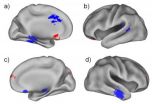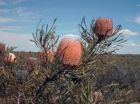(Press-News.org) Challenging students take up more of their teachers' time—and the difference between a tougher student and an easier one appears to be genetic, according to a new study published in Psychological Science, a journal of the Association for Psychological Science. The study looked at young twins in the U.K. and asked their teachers how much of a handful they are.
"Policy-wise, there's a lot going on, blaming teachers for what's going on in the classrooms," says Renate Houts of Duke University, who cowrote the study with Avshalom Caspi and Terrie E. Moffitt of Duke, Robert C. Pianta of the University of Virginia, and Louise Arseneault of King's College London. Many school systems have considered paying teachers based on how much the children in their classes improve. "One of the things that seems to be missing is that teaching is more of a relationship. You have to consider both sides of that relationship, the children and the teachers," Houts says.
To look at how students affect teachers, the researchers used data from a twin study that followed 1,102 pairs of British twins from age 5 to age 12. Twin studies are useful because comparing fraternal and identical twins shows what differences between children are inherited and which are not. The study included questionnaires for the children's teachers about how much of their time was taken up by each child.
The researchers found that children who were more challenging at age five required more teacher effort at age 12. They also found that it's something about the children that makes it that way—something heritable. They can't tell what it is, but they can tell it's there, and that their challenging behavior isn't, for example, the teacher's fault.
"What happens in the classroom isn't just a function of the teacher. It's also the kids who are in the classroom," says Houts. And it's possible to make life easier on teachers. It might be smart to spread the challenging students evenly between classes, for example.
Also, parents and teachers should consider working with children early on their challenging behaviors, so they don't cause as much trouble for teachers later. "If a teacher has to take time out to give individual attention to five challenging kids in her classroom, she can't focus on the whole classroom," Houts says.
###
The APS journal Psychological Science is the highest ranked empirical journal in psychology. For a copy of the article "The Challenging Pupil in the Classroom: The Effect of the Child on the Teacher" and access to other Psychological Science research findings, please contact Keri Chiodo at 202-293-9300 or kchiodo@psychologicalscience.org.
Teacher effort is linked to difficult students' inherited traits
2010-12-17
ELSE PRESS RELEASES FROM THIS DATE:
MRI scans reveal brain changes in people at genetic risk for Alzheimer's
2010-12-17
AUDIO:
People with a known risk for Alzheimer’s disease seem to develop abnormal brain function even before the appearance of amyloid plaques in the brain. A new study from Washington University...
Click here for more information.
People with a known, high risk for Alzheimer's disease develop abnormal brain function even before the appearance of telltale amyloid plaques that are characteristic of the disease, according to a new study.
Researchers at Washington University ...
New report outlines restoration activities to speed seagrass recovery in the Florida Keys
2010-12-17
Results of a five-year monitoring effort to repair seagrass damaged in a boat grounding incident suggest that restoration techniques such as replanting seagrass can speed recovery time. The finding is included in a new report released today by NOAA's Office of National Marine Sanctuaries.
The National Marine Sanctuaries Conservation Series report, "N-Control Seagrass Restoration Monitoring Report Monitoring Events 2003-2008," presents results of efforts to repair a nearly 1,000-square-foot (92.8-square-meter) swath of seagrass that was damaged on May 29, 2001, when a ...
Tiny 3-D images shed light on origin of Earth's core
2010-12-17
To answer the big questions, it often helps to look at the smallest details. That is the approach Stanford mineral physicist Wendy Mao is taking to understanding a major event in Earth's inner history. Using a new technique to scrutinize how minute amounts of iron and silicate minerals interact at ultra-high pressures and temperatures, she is gaining insight into the biggest transformation Earth has ever undergone – the separation of its rocky mantle from its iron-rich core approximately 4.5 billion years ago.
The technique, called high-pressure nanoscale X-ray computed ...
Extinctions, loss of habitat harm evolutionary diversity
2010-12-17
A mathematically driven evolutionary snapshot of woody plants in four similar climates around the world has given scientists a fresh perspective on genetic diversity and threats posed by both extinctions and loss of habitat.
The message from the study, appearing online ahead of publication in Ecology Letters, says lead author Hélène Morlon, is that evolutionary diversity -- the millions of years of evolutionary innovations contained in present-day species -- is more sensitive to extinctions or loss of habitat than long thought. And that, she adds, means conservation efforts ...
Emotional intelligence peaks as we enter our 60s, research suggests
2010-12-17
Older people have a hard time keeping a lid on their feelings, especially when viewing heartbreaking or disgusting scenes in movies and reality shows, psychologists have found. But they're better than their younger counterparts at seeing the positive side of a stressful situation and empathizing with the less fortunate, according to research from the University of California, Berkeley.
A team of researchers led by UC Berkeley psychologist Robert Levenson is tracking how our emotional strategies and responses change as we age. Their findings – published over the past ...
First measurement of magnetic field in Earth's core
2010-12-17
A University of California, Berkeley, geophysicist has made the first-ever measurement of the strength of the magnetic field inside Earth's core, 1,800 miles underground.
The magnetic field strength is 25 Gauss, or 50 times stronger than the magnetic field at the surface that makes compass needles align north-south. Though this number is in the middle of the range geophysicists predict, it puts constraints on the identity of the heat sources in the core that keep the internal dynamo running to maintain this magnetic field.
"This is the first really good number we've ...
PSA test better predicts cancer in men taking prostate-shrinking drug
2010-12-17
The PSA screening test for prostate cancer is not perfect. It can indicate cancer when none is present and miss life-threatening tumors. But a new study suggests the test is more reliable in men taking dutasteride (Avodart®), a drug widely prescribed to shrink an enlarged prostate gland.
Dutasteride lowers PSA levels by about half within six months. But the researchers found that even a slight rise in PSA levels among men taking the drug was a stronger indicator of prostate cancer, particularly aggressive tumors that require early diagnosis and treatment, than rising ...
Researchers suggest diagnostic criteria for posttraumatic stress disorder are lacking
2010-12-17
(Boston) - Current diagnostic procedures for posttraumatic stress disorder (PTSD) fail to adequately reflect research into the broad nature of a traumatic event, according to a study that will appear in the January print issue of Psychological Bulletin.
The relevancy of an individual's subjective experience in determining what constitutes a traumatic event has been a source of debate among PTSD specialists for years. The study concludes that both objective and subjective factors are relevant and that current PTSD criteria are missing several reactions that many trauma ...
Key information about breast cancer risk and development is found in 'junk' DNA
2010-12-17
A new genetic biomarker that indicates an increased risk for developing breast cancer can be found in an individual's "junk" (non-coding) DNA, according to a new study featuring work from researchers at the Virginia Bioinformatics Institute (VBI) at Virginia Tech and their colleagues.
The multidisciplinary team found that longer DNA sequences of a repetitive microsatellite were much more likely to be present in breast cancer patients than healthy volunteers. The particular repeated DNA sequence in the control (promoter) region of the estrogen-related receptor gamma (ERR-γ) ...
Tennis star's hospitalization for altitude sickness
2010-12-17
New Rochelle, NY, December 16, 2010 – Former tennis champion Martina Navratilova was hospitalized for pulmonary edema—fluid build-up in the lungs—while climbing Mount Kilimanjaro, drawing attention to the high risk of acute mountain sickness (AMS) and high altitude pulmonary edema among climbers of high peaks. A timely study in a recent issue of High Altitude Medicine & Biology, a peer-reviewed journal published by Mary Ann Liebert, Inc. (www.liebertpub.com), warned of the risks and serious medical outcomes associated with climbing Kilimanjaro and demonstrated that prior ...


